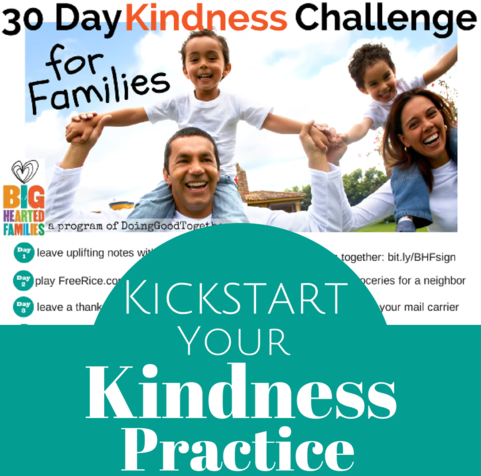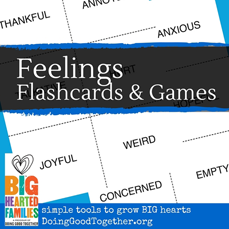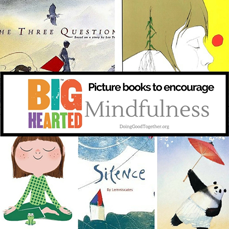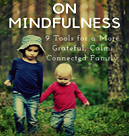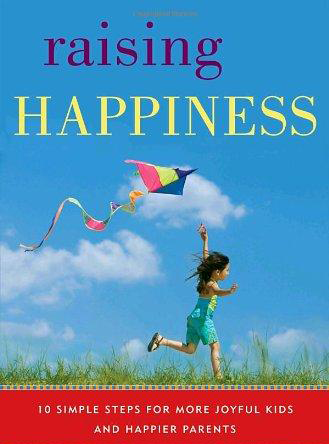SECRETS TO RAISING LIFE-LOVING CHILDREN
Despite what advertisers might say, raising children who have a zest for life isn't about assuring constant pleasure with the latest video games, over-the-top birthday parties -- or trips to Disneyland. Instead, researchers have found that parents cultivate well-being and joy when they nurture certain qualities in their kids. Here's how to build these traits into your family's routine.
-Jenny Friedman, Executive Director
SIMPLE STEPS TO JOYFUL KIDS
Make a Difference.....
Build emotional awareness. Perhaps more than any other skills, understanding and managing difficult emotions are keys to happiness. That means that a parent's primary job is to act as his or her child's "emotion coach." Help your child label feelings, and explore solutions to problems together.
Try this: Play games, have conversations, and read books that explore emotions and encourage mindfulnessFocus on optimism. There's compelling evidence that optimism, a sense of hope about the future, is a skill that can be learned. Display trust in your children, and help them cope with disappointment by seeing failure as an opportunity for growth. Do this with comments like: "Too bad you didn't do well on that test. Next time we'll practice your spelling words together. I bet that will help improve your score."
Try this: Every day at dinner, at breakfast or before bed, have each family member share one thing that is good about their life (or what made them happy that day) and describe why it brings them joy.Spend time in nature. Studies indicate that getting outside is correlated to better physical and mental health. Nature can also inspire amazing feelings of wonder and awe.
Try this: During your walks (remember to pack snacks!), focus in on your surroundings by bringing a binoculars, magnifying glass or camera; planning a scavenger or nature color hunt; collecting rocks or pinecones; or playing "I Spy." Also try walking in the rain, at sunrise or sunset, or in the dark.Practice kindness and giving. Kindness and happiness are intertwined in a delightful feedback loop -- kindness makes you happier, and happier people tend to be more kind.
Try this: Look into our month-long kindness challenge, which lists 30 easy, fun ways to do for others.Build relationships. Researchers agree: Community matters. We're programmed to form close bonds, and the quality of our connections can significantly affect our health.
Try this: Build (or strengthen) your network of family, friends and neighbors and embed your children in it. Also provide plenty of opportunities for your child to spend time with peers, and work with your child to resolve any conflicts that arise in their relationships.Cultivate empathy. This skill, which children can learn through practice, includes compassion for self as well as others.
Try this: Whenever you read together, talk about how the characters feel and why they took the actions they did. Do the same when approaching relationship issues with family and friends. This will help your child understand the world from other points of view and learn how to peacefully resolve disputes.
BIG CONVERSATIONS FOR SMALL PEOPLE
Talk About It.....
Interestingly, researchers have found that people who have deeper, more meaningful conversations about significant topics are happier than those who focus on small talk. Here are some questions to get your children in the habit of being thoughtful, examining how they feel, engaging with another person, and trusting that their thoughts matter. Model the art of conversation by asking follow-up questions to draw your child out even more.
- What's the hardest thing about being your age?
- Tell me about the most fun thing you did all week.
- Where in the world would you most want to visit? Why?
- What makes someone a good friend?
- If you won the lottery, what is the first thing you'd buy? Why?
- If you could change one thing about yourself, what would it be?
- How would you describe yourself to someone who didn't know you?
Learn About It.....
Screenwise: Helping Kids Thrive (and Survive) in Their Digital World by Devorah Heitner
INSPIRATION
It is not easy to find happiness in ourselves, and it is not possible to find it elsewhere."
- Agnes Repplier, American essayist


